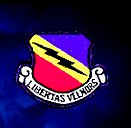 | |||
 | |||
 | |||
 | ||
CHAPTER 4
In 1922, the modern borders of Kuwait, Iraq, and Saudi Arabia were drawn, and ruling families loyal to Great Britain and France were given control. Sir Percy Cox, a high commissioner from Great Britain, met with a junior cabinet member representing Iraq, a British political agent representing Kuwait, and with Sheikh Abdul-Aziz ibn Saud, who would soon become the ruler of what is now Saudi Arabia. The meeting lasted seven days. When the parties could not reach a compromise on
where to draw the borders, Cox dictated where the lines would be drawn. Afterwards, representatives of Iraq - the most sophisticated of the three nations - were extremely bitter, because the new borders denied their country any access to the Persian Gulf. The Cold War ended in the late 1980s with the reunification of Germany and the breakup of the Soviet Union, signaling a new beginning for nations seeking peace. President Bush called it "the new world order," but the
invasion of Kuwait was a serious blow to the concept. "What is at stake is for more than a matter of economics or oil," Bush declared after the invasion. "What is at stake is whether the nations of the world can take a common stand against aggression ... whether we live in a world governed by the rule of law or by law of the jungle." On 4 August 1990, President Bush met with his advisors at Camp David. There was deep concern among the group because
satellite photos revealed six Republican Guard divisions moving south toward the Saudi - Kuwaiti border. If Saddam Hussein were to invade Saudi Arabia and capture the strategic oil fields along the eastern coast, he would have control of more than half the world's oil supplies. He would be able to manipulate oil prices and redefine the region's power structure. Secretary of Defense On 8 August 1990, after Iraq announced it had annexed Kuwait as its "nineteenth province," President Bush addressed our nation. His speech marked the beginning of Operation Desert Shield.
| ||